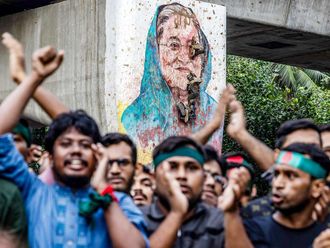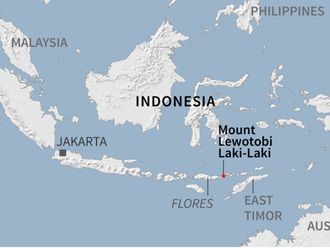Dhaka: Diplomats from European Union nations in Dhaka are split over the trial of "crimes against humanity" during Bangladesh's 1971 Liberation War, according to a report on Saturday.
The New Age newspaper said the difference of opinion surfaced among diplomats about what public position the European Union should take on the adequacy of the International Crimes (Tribunal) Act 1973, under which major Bengali-speaking suspects of the 1971 war crimes were being exposed to justice.
Quoting a British High Commission official, the report said the UK government acknowledged the criticisms of the 1973 act made by international lawyers.
"We concur with the opinion of the IBA's (International Bar Association) War Crimes Committee, i.e, that whilst the 1973 act is broadly compliant with international standards, we would want to see the adoption of its 17 recommendations," the High Commission's political and global issues secretary Jon Ryan told the Age.
However, the chair of the European Union's Human Rights Task Force, which comprises EU diplomats based in Dhaka, Andrew Barnard told the newspaper earlier that: "lthough there may be some ‘technical' shortcomings in the legislation, they will not necessarily lead to a miscarriage of justice."
According to the report, Barnard's comments sparked a controversy among EU diplomats that prompted him to issue a subsequent statement saying "it is for Bangladesh to decide whether to bring perpetrators of crimes during the war of independence to trial".
"The EU would however urge Bangladesh to ensure that trials meet international standards for fair judicial processes," it read.
British High Commissioner in Dhaka Stephen Evans last week told Gulf News that his country appreciated the initiatives for exposure of the perpetrators of the 1971 crimes but it expected the process to comply with the international standards and ensure the suspects rights of defence.
Bangladesh in March last year constituted a high-powered special tribunal headed by a High Court judge to try the Bengali speaking perpetrators of "crimes against humanity" during the Liberation War against Pakistan coinciding with the country's 39th independence Day under the International Crimes (Tribunal) Act 1973.
Under the same law the government simultaneously formed a special investigation agency comprising in service and former bureaucrats and police and military officials and a 12-member panel of prosecution team with senior Supreme Court lawyers.
The law suggests highest death penalty and the lowest 10 years of imprisonment for crimes like massacre, murders, arsons and rapes while it allows convicts to file appeals only before the apex Appellate Division of the Supreme Court.
However, the International Bar Association (IBA) earlier said there were "significant omissions" regarding protection of rights of the people on trial and "out of date" definitions of war crimes in the 1973 act.
The Government has rejected the criticisms and pointed to the fact that the IBA's advice also states that the legislation "provides a system that is broadly compatible with current international standards".
"While we attach significant weight to the [IBA's] opinion, we are not saying that trials cannot be held to international standards without the wholesale adoption of all recommendations. Much will depend on how the trials are conducted once they begin," Bernard told the New Age.
Senior counsel for the accused Abdur Razzaq told New Age that he was not impressed by the level of expertise consulted by the European Union.
"The European Union is expected to have better standards," he said.
Five stalwarts of fundamentalist Jamaat-e-Islami (JI), which was a crucial partner of ex-prime minister Khaleda Zia's main opposition Bangladesh Nationalist Party (BNP), and an influential BNP lawmaker were now in jail to face the trial on war crime charges.
They were JI chief Matiur Rahman Nizami and secretary general Ali Ahsan Mohammad Mojaheed and BNP leader Salahuddin Qader Chowdhury.
JI was opposed to Bangladesh independence while Nizami and Mojajeed allegedly led the infamous elite Al Badr auxiliary militia force, which is particularly castigated for their alleged role in killing a number of leading intelligential during the war.
The post-independence government had announced a general amnesty to those who opposed the independence keeping the persons accused of arson, rape and killings out of its purview.











